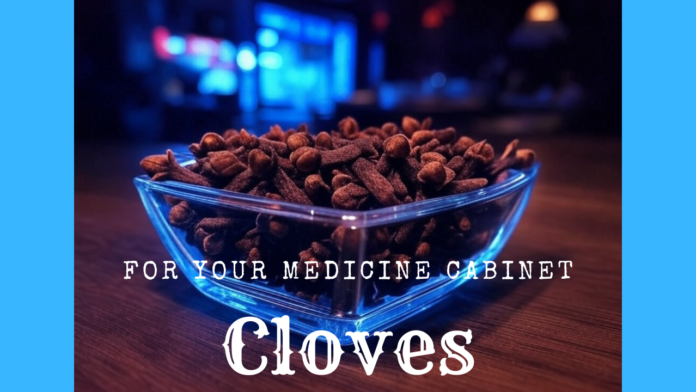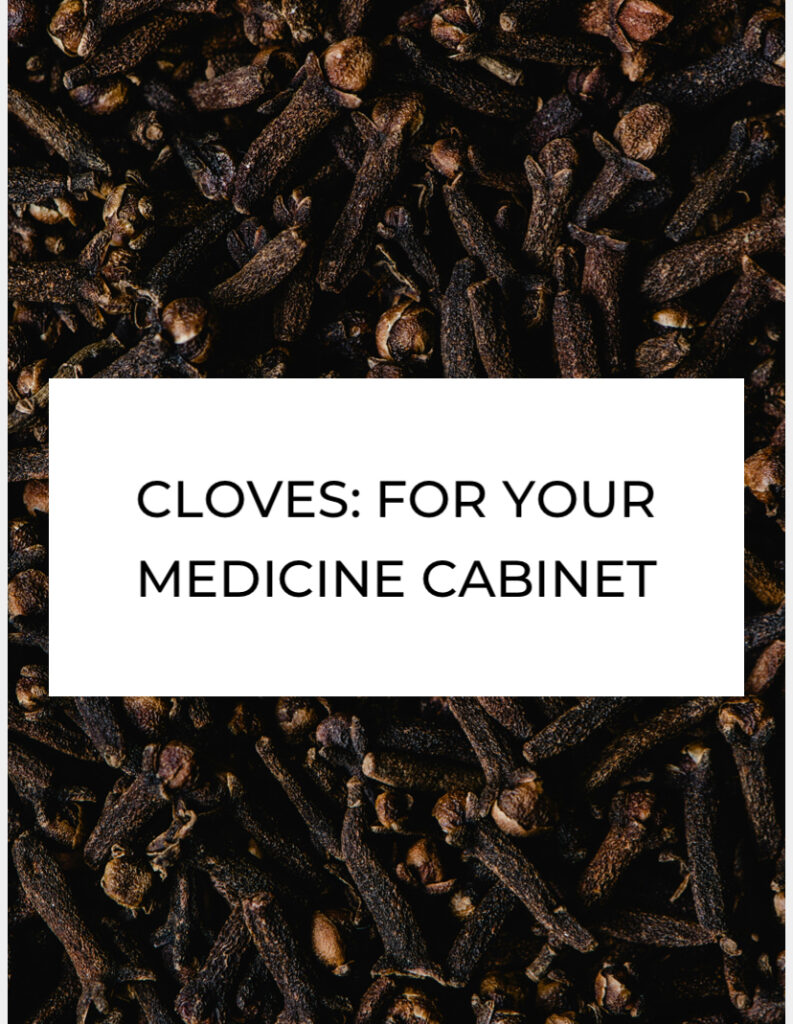
Disclaimer: Be advised none of this is considered medical advice and you should always consult your physician for any and all treatment.
Article discussion on our forum here
Cloves are dried flower buds from the evergreen Syzygium aromaticum tree. Cloves have been used for centuries not only as a spice but also for their impressive health benefits.
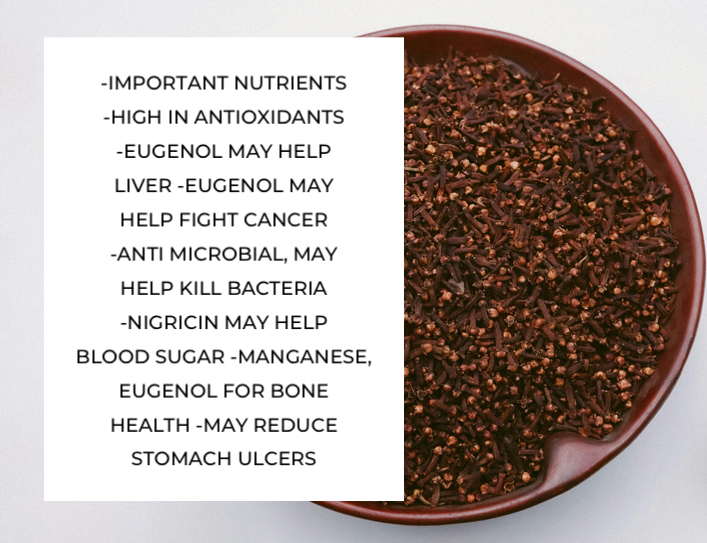
These tiny buds are packed with antioxidants, particularly eugenol, which helps combat oxidative stress and may reduce the risk of chronic diseases like heart disease and cancer.
Eugenol is present in concentrations of 80%–90% in clove bud oil and at 82%–88% in clove leaf oil.
Cloves also possess strong antimicrobial properties, making them a natural ally against bacterial and fungal infections. They’re also antiviral.
Historically cloves were used for food preservation because they can help keep growth of bacteria, including listeria, Pseudomonas aeruginosa, Salmonella, Streptococcus and Staphylococcus, under control. (Dr. Axe) Think back of a time before pressure-canning, refrigeration, and modern food storage methods; many people fermented foods, and I’ve personally used it in fermented chutneys and spiced carrots.
History also shows cloves were used to fight oral pathogens, which is why clove oil is still a common remedy for toothaches. Most pharmacies sell emergency dental kits with clove oil.
Cloves may aid digestion by stimulating enzyme production and reducing inflammation in the gut, while some studies suggest they could help regulate blood sugar levels due to compounds that improve insulin function.
The warm, spicy scent is known to have a calming effect, potentially easing stress when used in aromatherapy.
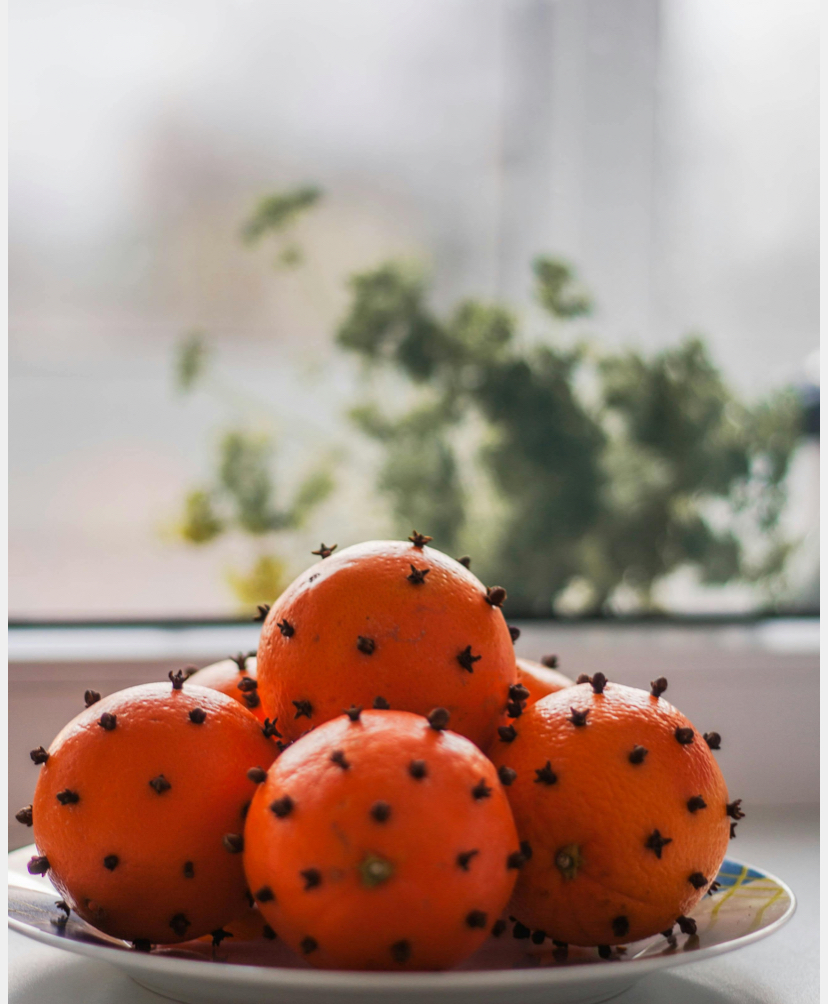
Cloves are often used in baked goods, pot roasts, hams, spiced lattes, chai tea, rice dishes, Indian foods, and more. It’s also one of the spices in “pumpkin spice” and Worcestershire sauce.

Cloves for Dental Pain
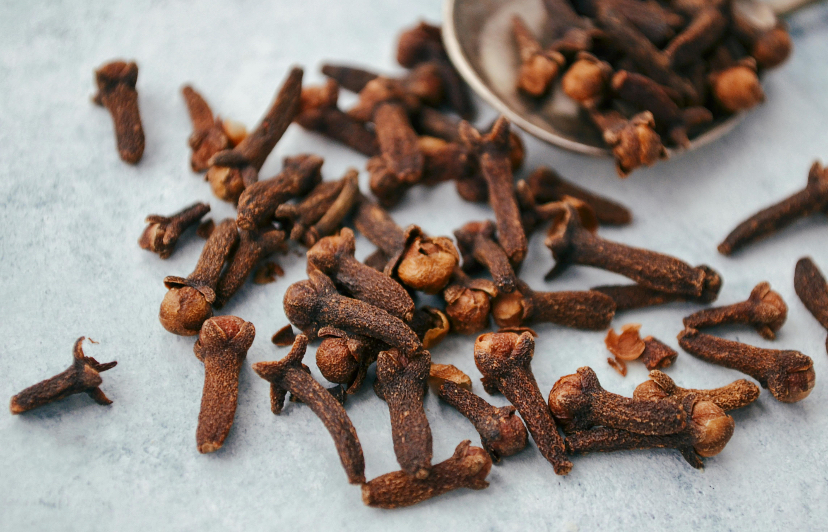
Clove essential oil is high in antioxidants and has potent anti-inflammatory, antibacterial, antiviral and antifungal properties. This makes it effective for a large variety of common health concerns, including toothaches and candida. –Dr. Josh Axe
Cloves have long been a go-to natural remedy for dental pain thanks to their active compound, eugenol, which acts as a mild anesthetic and boasts anti-inflammatory and antibacterial properties.
One of the simplest ways to use cloves for toothaches is to apply clove oil: dab a small amount onto a cotton ball or swab, then gently press it against the aching tooth or gum for a few minutes to numb the area and reduce swelling.
Eugenol can numb the nerves, up to 2-3 hours.
If you don’t have clove oil, you can chew a whole clove lightly and hold it near the painful spot for about 10-15 minutes, letting the eugenol seep out naturally—though it’s wise to avoid swallowing too much.
You can make a clove rinse by steeping a teaspoon of ground cloves or a few whole cloves in a cup of hot water for 5-10 minutes, then straining and swishing the cooled liquid around your mouth to soothe irritation.
(Whichever method you choose, it may only be a temporary fix—dentists still recommend seeing a professional for persistent pain, as cloves can’t treat underlying issues like cavities. I’m not a medical professional and this article is for information and experience sharing.)
Web MD stated; Some high-acid foods and drinks may break down your tooth enamel (the hard, outer layer of your teeth). One study found that the eugenol in clove oil, when applied to teeth, may reverse or lessen these effects. But more research is needed to fully explore clove oil as a treatment or way to prevent tooth enamel erosion.
Risks and Side Effects
Dr. Josh Axe has several articles about the medicinal use of cloves. He does give this warning:
Using too much can lead to side effects, such as:
- skin irritation
- burning of the mouth, nose or throat
- breathing difficulties
- indigestion
- diarrhea
Rarely, ingestion of high doses can cause liver damage.
Clove is known to slow down blood clotting due to its eugenol content. It may interact with blood-thinning medications, such as anticoagulant/antiplatelet drugs. To be safe, avoid combining this oil with such drugs.
We encourage you to do your own research.
Cloves are considered safe for cooking. Cloves are a great addition for most holistic kitchens and preppers. Whole cloves keep well in sealed containers for up to 3-4 years. Ground cloves have about 1-2 years of shelf life. Preppers might opt for mylar storage for longer shelf life.
Ezekiel 47:12 …and the fruit thereof shall be for meat, and the leaf, thereof for medicine.
(Sources: Grok, Healthline, Dr. Josh Axe)
